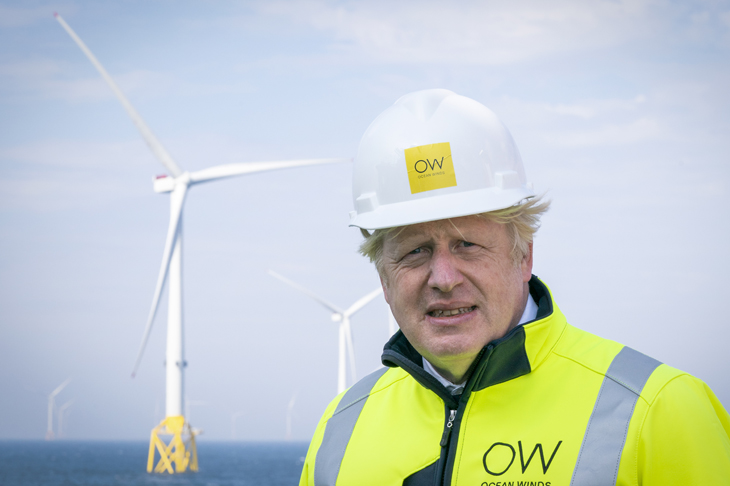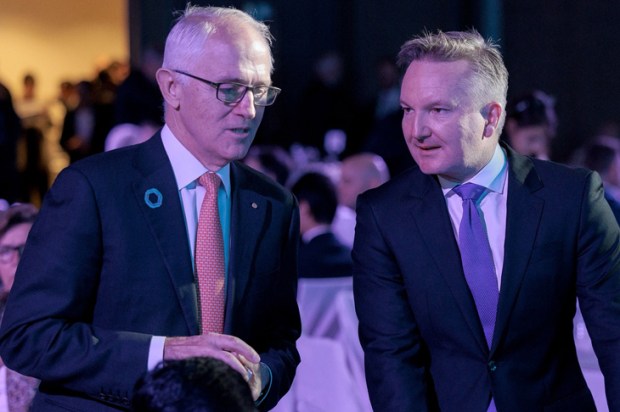I don’t know about you, but I’m not at all keen about some jumped-up government official telling me to freeze my bread, order shampoo in cardboard boxes and refrain from rinsing my dishes before popping them in the dishwasher.
But that’s precisely what the UK government’s recently appointed climate spokesperson, Allegra Stratton, has been doing – barking out orders to the ignorant masses. Mind you, half of British households don’t have dishwashers, so they must have been bemused by that particular command.
But poor old Allegra got herself into a bit of hot water – solar-generated, one hopes – when she claimed that she ‘didn’t fancy’ having an electric vehicle because of the time it takes to charge. The predictable green pile-on was almost instantaneous – didn’t she realise that the range of EVs has been increasing at a phenomenal rate?
And now we have learnt that Alok Sharma, UK Minister of State at the Cabinet Office and President of the COP26 (the UN Climate Change Conference to be held in Glasgow later this year), has been criss-crossing the globe travelling on emissions-intensive airplanes. No Greta sailing for him.
He’s been to thirty countries to drum up support for net zero emissions by 2050 and other climate initiatives but didn’t bother quarantining when he finally got back to the UK. The Johnson government didn’t seem to realise that granting such an exemption to a politician is a very bad look, particularly as Sharma had travelled to a number of red zone (high Covid numbers) countries.
And in the meantime, things have been going pear-shaped in the world of international climate diplomacy. The recent meeting of G20 energy and environment ministers held in Naples – partly by Zoom – failed to reach any material agreement, particularly in relation to the early phasing out of coal. The UK and a number of other green zealots within the EU thought that 2025 sounded like a good date. But India and China refused to play ball.
Those same zealots also wanted to commit to a maximum global temperature rise of 1.5 degrees Celsius (I know, but bear with me) rather than the 2 degrees in the Paris Agreement. Again, there was no agreement. The final communique was a full-on Claytons agreement – 58 points of fine, uplifting words with absolutely no binding commitments made by the group.
Back in the UK, green issues are now playing badly for the Johnson government. We all know he is a wildly enthusiastic greenie, in keeping with the views of his new wife. In practice, however, the government has faltered badly, particularly in relation to home heating.
The problem for the UK is that, when it comes to reducing greenhouse gas emissions, the low-hanging fruit has been picked. The fact that there is not much coal-fired electricity left in the system is neither here nor there – coal mining was always very inefficient in the UK.
The public hasn’t really noticed that coal has been replaced by gas, woodchips (which are laughably labelled as renewable energy) and those vast wind turbines, many offshore, as sources of electricity. And of course, there is still some nuclear in the UK electricity grid, plus the option of importing electrons from Europe.
The trouble for Boris now is that the rubber is hitting the road because the next phases impose real costs on the public as well as persuading (or mandating) people to change their ways of life. That looks like risky politics.
Take domestic heating in the UK. It is estimated that this contributes nearly one-quarter of all greenhouse emissions. The targeted villain is the reliable gas boiler used by the majority of householders to provide affordable and efficient heating in the colder months (which is pretty much all the year in parts of the country).
The government introduced a Future Homes Standard scheme, which is currently running nine years behind schedule, with the aim of phasing out gas boilers, to be replaced by the much more expensive heat pumps. The plan was to ban all gas boilers from 2035, although that date has now been pushed back to 2040.
These pumps cost upwards of 10,000 pounds and, to be effective, need to be paired with expensive upgraded home insulation. And in colder parts of the country, the pumps may not even work during very frosty periods; they have to be buried to work at all.
For many people, the very idea of the heat pump has gone down like a lead balloon. Why would they want to replace their gas boilers when they are perfectly adequate for their needs? It is also estimated that the annual heating bill using a heat pump will be 100 pounds higher.
There are also plans to make it compulsory to have a heat pump installed in order for a house to be sold. That’s right: owners will have to stump up at least 10,000 pounds to make their homes saleable. Lead balloons are morphing into white-hot rage.
The government acknowledges that householders will need assistance with the switch to heat pumps but even the Chancellor of the Exchequer, Rishi Sunak, has baulked at the cost. Of the 1.4 trillion pounds it is expected to cost UK taxpayers to achieve net zero by 2050, around 400 billion pounds is the estimated cost of subsidising heat pumps. Given the relatively parlous state of the UK government’s finances, this is a big ask.
In the meantime, an organised group of Tory parliamentarians has decided to speak out against Boris’s loony green ideas, in particular the heat pumps. (Note here Boris also intends to ban petrol/diesel car sales from 2030 – yeh, right.)
Boris has not been helped by comments made by the Chairman of the Climate Change Committee advising the UK government, including telling the public, to ‘get used to a reduced lifestyle’ and the requirement for ‘attitudinal shift’. I guess for someone living in a comfortable home on a comfortable income, that’s water off a duck’s back; for many Britons, it’s a red rag to a bull.
As COP26, the Glasgow climate change conference, approaches, the divisions within the UK government couldn’t have come at a worse time.
But the truth is that these divisions are based on the reality that people don’t want to be pushed around and don’t want to sacrifice their living standards for some ephemeral greater planetary good, knowing full well that China has no intention of joining in.
Got something to add? Join the discussion and comment below.
Get 10 issues for just $10
Subscribe to The Spectator Australia today for the next 10 magazine issues, plus full online access, for just $10.
You might disagree with half of it, but you’ll enjoy reading all of it. Try your first month for free, then just $2 a week for the remainder of your first year.














Comments
Don't miss out
Join the conversation with other Spectator Australia readers. Subscribe to leave a comment.
SUBSCRIBEAlready a subscriber? Log in